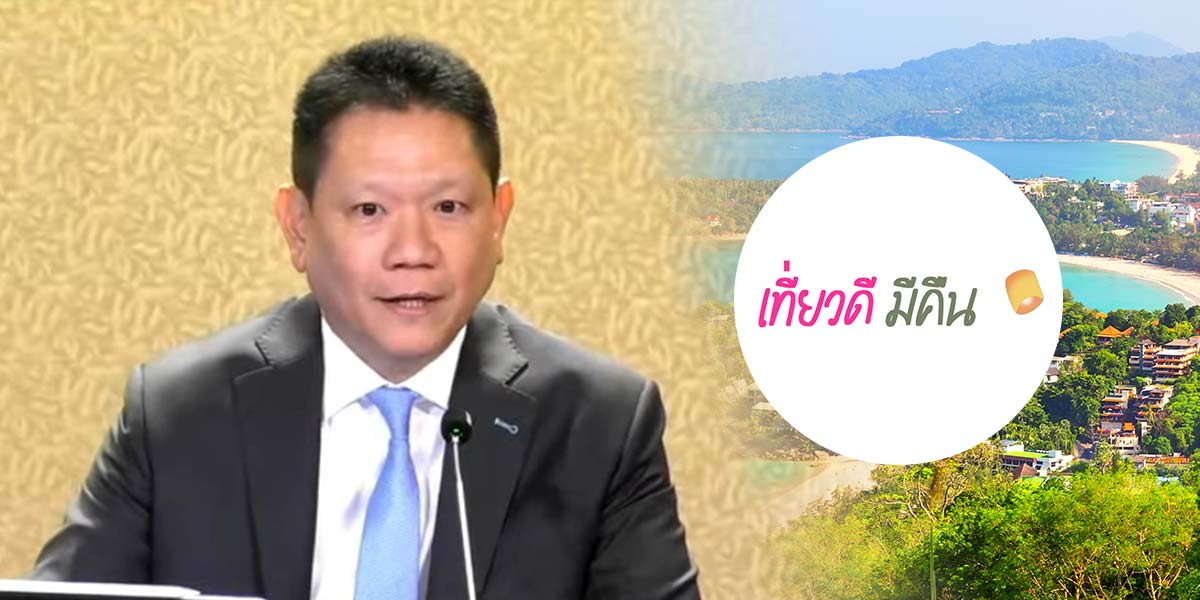Today (October 21, 2025), Mr. Lavaron Sangsnit, Permanent Secretary of the Ministry of Finance, together with Mr. Vinit Visessuvanapoom, Director General of the Fiscal Policy Office (FPO), announced the launch of domestic tourism stimulus measures under the package “Tiew Dee Mee Khuen” (Good Trip, Good Return), consisting of five sub-measures as follows:
- Personal Income Tax Measure supports domestic tourism with a total tax deduction right of THB 20,000. This is divided into two portions: the first THB 10,000 can use either paper tax invoices or e-Tax Invoice, while the remaining THB 10,000 must exclusively use e-Tax Invoice. If traveling in 55 secondary provinces or some districts of major provinces, such as Galyani Vadhana District, Chiang Mai Province, a 1.5 times tax deduction is allowed. For major cities, a one time deduction applies. The measure will be effective from 29 October – 15 December 2026, alongside the “Khon La Khrueng Plus” (Half-Half Plus) scheme.
- Corporate Income Tax Measure supports organizing training and seminars domestically during the same period. Related expenses—including seminar room, accommodation, transportation, and others with e-Tax Invoice—are deductible. For secondary provinces, the deduction is two times; for main provinces, 1.5 times. Transportation does not require a tax invoice but must have an e-Receipt.
- Accelerated Disbursement for Government Training/Seminar Budgets (Front Load) stimulates budget spending for government training, meetings, and seminars from October to January 31, 2026. Senior executives of each agency must disburse at least 60% of their budgets within this period. Mr. Lavaron stated this measure does not use new funds but accelerates budget utilization during an economic slowdown, increasing from the previous rate of only 10 – 20% disbursed in the first quarter.
- Tax Measure for Hotel and Accommodation Improvement allows entrepreneurs to deduct expenses for renovation, improvement, or expansion of hotel-related assets at two times of the actual cost. The first portion is claimed as normal depreciation, and the second portion is spread equally over 20 accounting periods. Effective from 29 October 2025 – 31 March 2026, the measure is currently being presented to the Cabinet to arrange funding, with expected participation from 1,200 operators, totaling THB 24 billion in investment.
- Entertainment Excise Tax Reduction extends the reduction of excise tax from 10% to 5% for entertainment and recreation businesses from January 1 to December 31, 2026, to reduce tax burdens for businesses in the services sector.
Mr. Lavaron stated that these five measures will complement previously announced economic stimulus and enliven the domestic tourism atmosphere towards the end of the year.
He explained that the intention behind these measures is to restore tourism activity to previous levels following recent signs of a slowdown. Any growth—even modest—is better than a contraction of 2.7%. However, the impact will not be as significant as large-scale programs like the Half-Half Plus scheme or “State Welfare Card.”
Mr. Vinit added that the new initiatives will stimulate GDP by about 0.04%. If they are implemented alongside the Half-Half Plus scheme and State Welfare Card programs, bringing the combined stimulus package to approximately THB 110 billion, Mr. Vinit projects that the total impact on GDP could reach about 0.44%.
Mr. Siripong Angkasakulkiat, Government Spokesperson, stated that the measures are part of the “Five Pillars of Economy” policy proposed by Dr. Ekniti Nitithanprapas, Deputy Prime Minister and Minister of Finance, which will be gradually rolled out to urgently stimulate the year-end economy.
It is expected that all measures combined will boost 4Q GDP by about 1%. Although the government will lose around THB 5 billion in revenue, it is considered a worthwhile investment to maintain overall economic growth.





